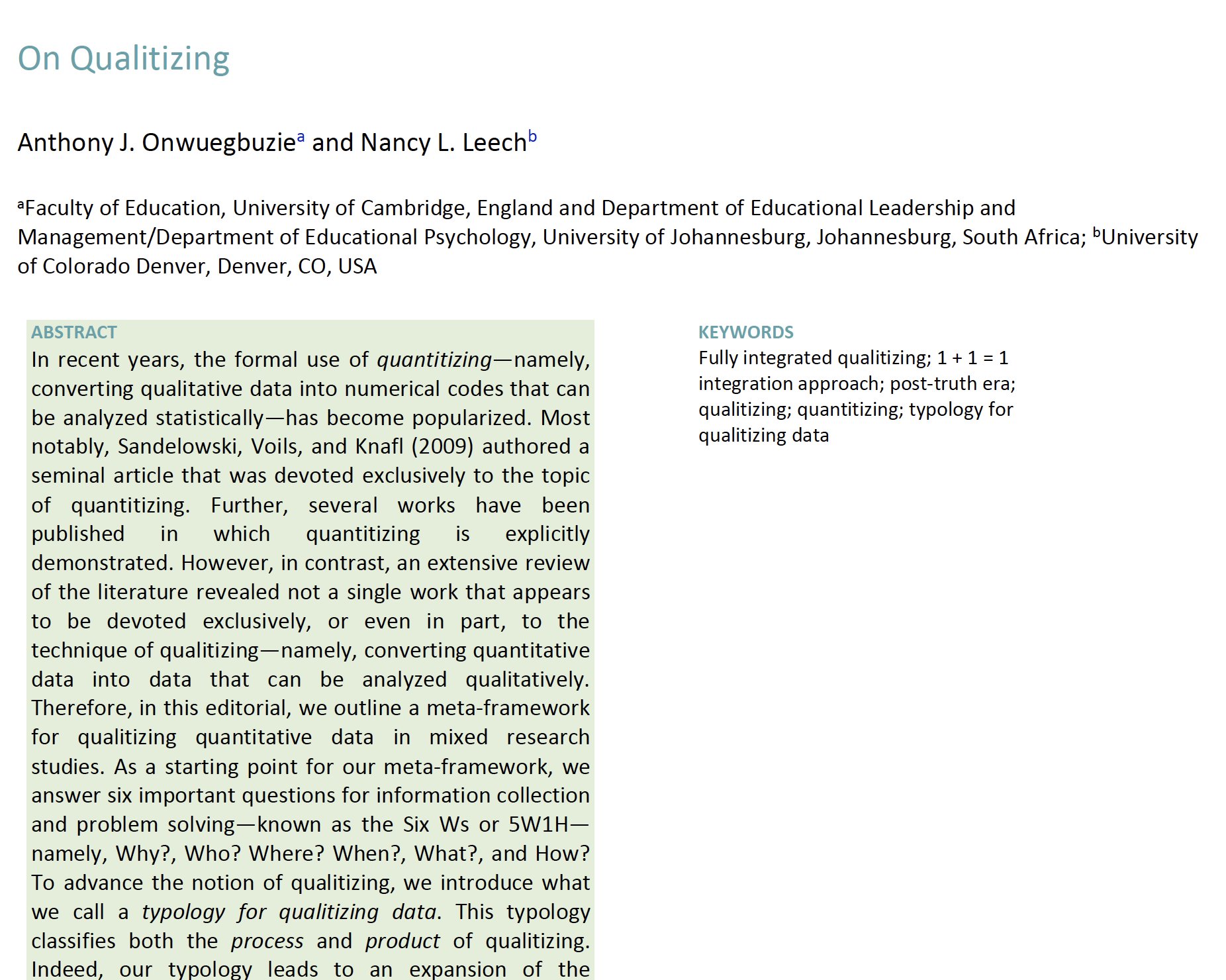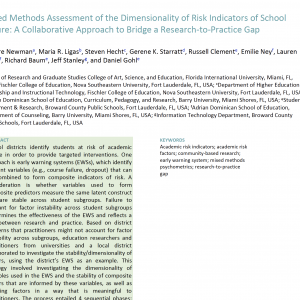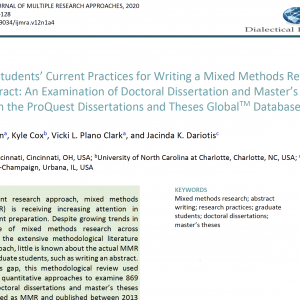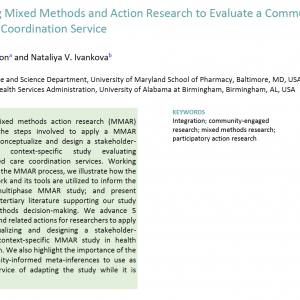11(2).02. On Qualitizing
$30.00
Description
Author
Anthony J. Onwuegbuzie (Faculty of Education, University of Cambridge, England and Department of Educational Leadership and Management/Department of Educational Psychology, University of Johannesburg, Johannesburg, South Africa; Dialectical Publishing, LLC, Bloomington, IN, USA)
Nancy L. Leech (University of Colorado Denver, Denver, CO, USA)
Abstract
In recent years, the formal use of quantitizing—namely, converting qualitative data into numerical codes that can be analyzed statistically—has become popularized. Most notably, Sandelowski, Voils, and Knafl (2009) authored a seminal article that was devoted exclusively to the topic of quantitizing. Further, several works have been published in which quantitizing is explicitly demonstrated. However, in contrast, an extensive review of the literature revealed not a single work that appears to be devoted exclusively, or even in part, to the technique of qualitizing—namely, converting quantitative data into data that can be analyzed qualitatively. Therefore, in this editorial, we outline a meta‐framework for qualitizing quantitative data in mixed research studies. As a starting point for our meta‐framework, we answer six important questions for information collection and problem solving—known as the Six Ws or 5W1H— namely, Why?, Who? Where? When?, What?, and How? To advance the notion of qualitizing, we introduce what we call a typology for qualitizing data. This typology classifies both the process and product of qualitizing. Indeed, our typology leads to an expansion of the definition of qualitizing because it illustrates how qualitizing can involve 5 major elements that includes the concept of fully integrated qualitizing. Finally, we provide 2 heuristic examples from the extant literature that exemplify our typology of qualitizing. We contend that the continued expansion of fully integrated qualitizing approaches is a step in an appropriate direction of facilitating multimodal narratives to democratize evidence and, in turn, leveraging research in a post-truth era.




